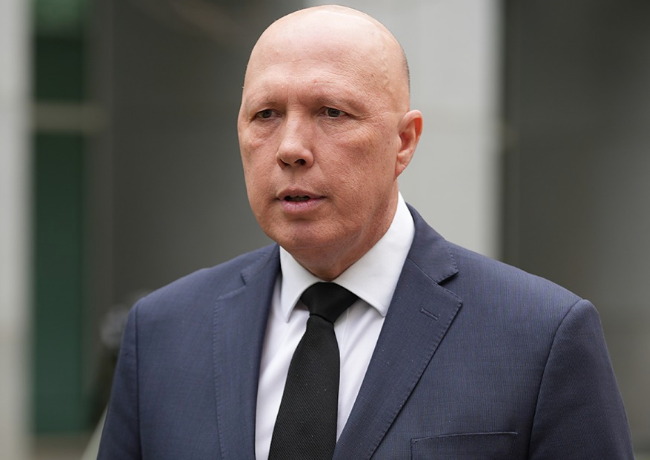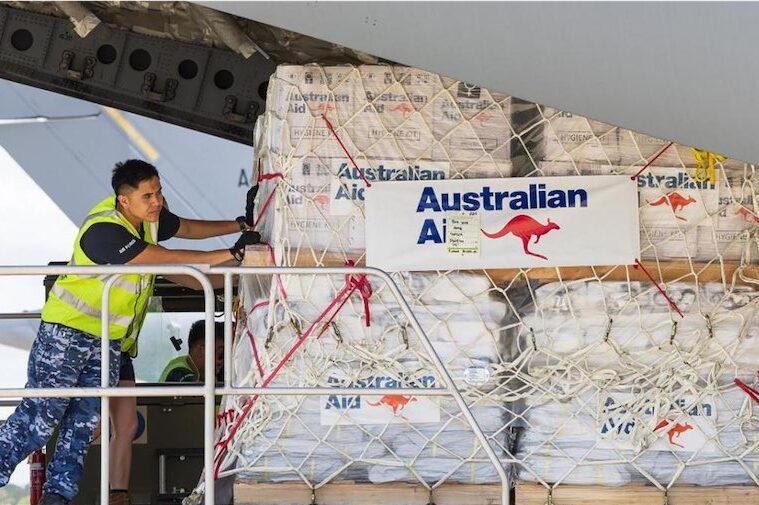
By Paul Osborne and Rachael Ward in Canberra
OPPOSITION leader Peter Dutton claims the Robodebt royal commission was politicised from the very beginning and apologised to people impacted by the illegal debt collection scheme.
On Friday it was revealed federal police and the anti-corruption watchdog are considering civil and criminal evidence against certain unnamed individuals.
A report tabled in parliament found certain former coalition ministers had dismissed or ignored concerns about the unlawful scheme, however that has been rejected by the politicians in question.
Mr Dutton accused Government Services Minister Bill Shorten of taking advantage of the issue from day one.
“He’s a political animal and he’s used every opportunity to milk out whatever political advantage there is to the Labor Party out of this particular issue and the prime minister’s doing the same,” Mr Dutton told reporters on Saturday.
“I just sound a word of caution about the prime minister’s politicisation of this process as well.”
The Liberal leader said the former Coalition government stopped the scheme when problems were brought to its attention and said his party would consider the recommendations.
“I’m sorry to those people that have been adversely affected, I truly am,” Mr Dutton said.
More than 100 ministers, advisers, public servants and contractors gave evidence to the royal commission.
A sealed chapter of the report recommended the referral of a number of people for what the commission described as “civil action or criminal prosecution” but it was kept secret so as not to prejudice any future court cases.
Commissioner Catherine Holmes has made submission to the heads of federal agencies, the Australian Public Service Commissioner, the National Anti-Corruption Commissioner, the president of the Law Society of the ACT and the Australian Federal Police.
Among those singled out in the report was former prime minister Scott Morrison, who was accused of misleading cabinet over the scheme.
Mr Morrison rejected any suggestion of wrongdoing, saying the inquiry’s findings were “based upon a fundamental misunderstanding of how government operates”.
Commissioner Holmes did not recommend compensation for those impacted by the scheme, or an apology from bureaucrats.
Her report outlined a litany of human impacts, including families struggling to make ends meet and young people driven to despair and suicide.
Madeleine Masterton, who was the litigant in the first robodebt test case, said was not concerned about a lack of an apology but welcomed the commissioner’s call for higher welfare payments.
She said she was gratified to see “the failures laid out clearly and the horror of having targeted people with the least capacity to navigate a complex system”.
The former government launched its crackdown on “suspected welfare fraud and non-compliance” in mid-2015 in an effort to save billions of dollars.
It issued debt notices to people identified through a process called income averaging, which compared reported incomes with tax office data.
But it ended up delivering $406 million in savings and costing $971 million.
The scheme was ruled unlawful by the Federal Court in 2019, after issues were raised by Victoria Legal Aid.
“The commissioner’s final report represents a moment of justice and vindication for everyone who was harmed by this scheme,” managing lawyer Miles Browne said.
Who can be trusted?
In a world of spin and confusion, there’s never been a more important time to support independent journalism in Canberra.
If you trust our work online and want to enforce the power of independent voices, I invite you to make a small contribution.
Every dollar of support is invested back into our journalism to help keep citynews.com.au strong and free.
Thank you,
Ian Meikle, editor





Leave a Reply